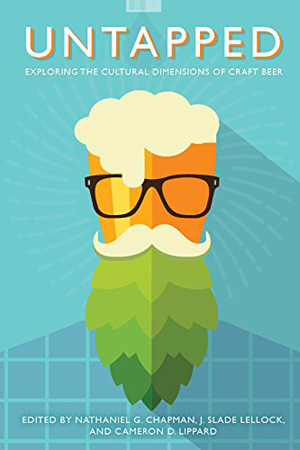Make what you will of this (because the point is not to discuss Alanis Morissette’s music), think of a beer from the 1990s and rewrite the sentence in your head.
Most of the top music from the 1990s, such as say Alanis Morissette, would sound current if released today, a sign of cultural stasis in what was once a highly socially charged and rapidly changing sector.
 Context: “Once We Listened to the Beatles. Now We Eat Beetles” at Bloomberg, which Tyler Cowen pointed to (“Food has replaced music as culturally central, at least for America’s professional class”) at Marginal Revoluation. Best to read the original article, but the juicy comments are at Marginal Revolution.
Context: “Once We Listened to the Beatles. Now We Eat Beetles” at Bloomberg, which Tyler Cowen pointed to (“Food has replaced music as culturally central, at least for America’s professional class”) at Marginal Revoluation. Best to read the original article, but the juicy comments are at Marginal Revolution.
More context: I’ve just started reading Untapped: Exploring the Cultural Dimensions of Craft Beer, which is thoroughly engaging and should reframe a lot of conversations about beer, pre-Jack McAuliffe or post. As a journalist I’m not sure how I feel about this from this from the foreword — “As sociologists examine these trends, they bring insights that journalistic interpretations often gloss over” — but the sentence provides a reader with a good idea what to expect.
Premise: Beer is food.
I’ll leave you to consider the question at the top — cultural stasis/beer stasis ~ 1995/2017 ~ “IPA? What’s with all this bitterness?”/”IPA? Where’d all the bitterness go?”
Instead I direct you to Erik’s comments (and not only because he too wonders how current Alanis Morissette sounds).
Music stopped being culturally significant when we stopped listening together and instead had complete autonomy and privacy in our musical choices.
Food is still somewhat aspirational – most of us can’t afford to eat at the best restaurants in the world, or to find authentic versions of traditional foods around the world, nor do we have the skill to perfectly recreate it. That makes food a challenge and makes it the stuff of legend and fantasy. It is also something we still tend to share with others.
Just more to think about as I make my way through Untapped (no that Untappd).